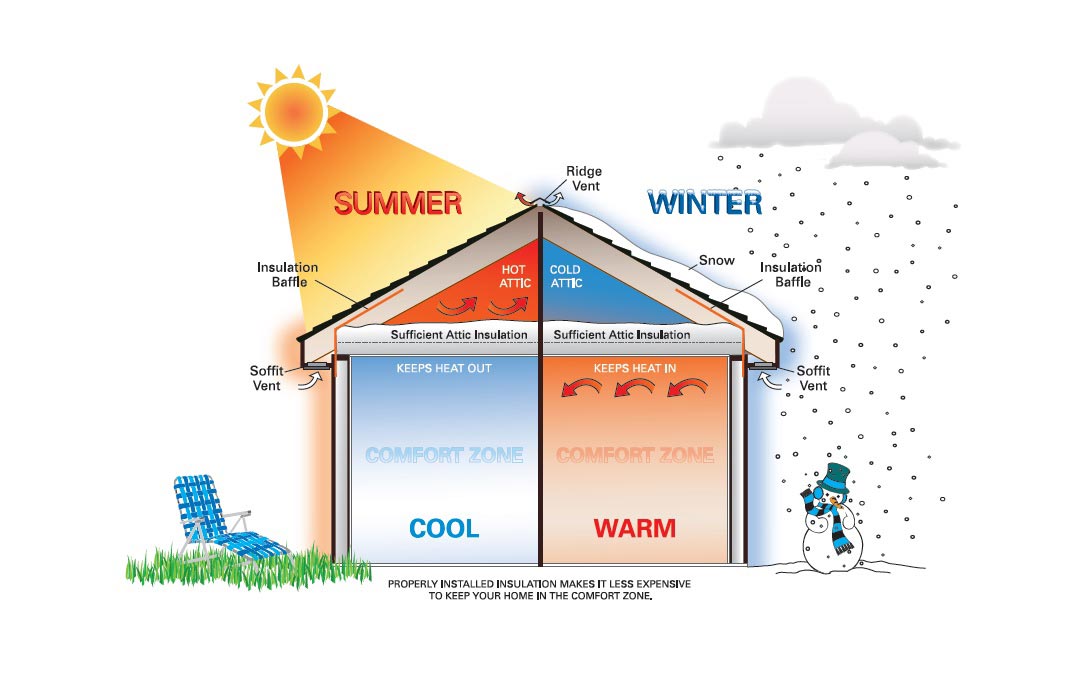Index Surge: Amplifying Your Insights
Stay updated with the latest trends and news across various industries.
Insulation That Doesn’t Suck: Keep Your Home Cozy and Your Bills Low
Discover insulation secrets to keep your home cozy and your energy bills low. Say goodbye to high costs and hello to comfort!
The Ultimate Guide to Choosing the Right Insulation for Your Home
When it comes to enhancing energy efficiency and comfort in your home, choosing the right insulation is paramount. With a plethora of options available, it can be overwhelming to decide which insulation material best meets your needs. Fiberglass, foam board, and cellulose are among the most popular types, each offering unique benefits. For instance, fiberglass insulation is widely appreciated for its affordability and ease of installation, while spray foam insulation provides excellent air sealing properties, making it ideal for hard-to-reach areas. Before making a decision, consider factors such as R-value, installation method, and environmental impact.
To simplify your selection process, here are key criteria to consider when choosing insulation for your home:
- R-Value: Look for materials that provide a higher R-value to ensure better thermal performance.
- Moisture Resistance: Select insulation that can withstand humidity and prevent mold growth, particularly in areas like basements and attics.
- Soundproofing: If noise reduction is a priority, options like cellulose insulation can absorb sound effectively.
- Environmental Impact: Opt for eco-friendly insulation materials that contribute to greener building practices.
Ultimately, understanding these factors will empower you to choose insulation that not only meets your budget but also optimizes your home’s energy efficiency.

5 Common Myths About Home Insulation Debunked
When it comes to home insulation, many homeowners fall victim to common misconceptions that can lead to poor decision making. One prevalent myth is that insulation is only necessary for extremely cold climates. In reality, effective insulation plays a crucial role in maintaining a comfortable temperature in your home, regardless of where you live. It works not only to keep the heat in during winter but also to keep your home cool in the summer, making it essential for energy efficiency year-round.
Another widespread belief is that thicker insulation is always better. However, the performance of home insulation is determined by its R-value, which measures resistance to heat flow, rather than its thickness. In fact, installing insulation that exceeds the recommended R-value for your region can be a waste of money and may not contribute significantly to energy savings. Understanding the right type and amount of insulation for your home is vital in debunking these myths and ensuring optimal energy efficiency.
How Proper Insulation Can Save You Money on Energy Bills
Proper insulation plays a crucial role in maintaining a comfortable indoor environment while simultaneously reducing energy costs. By preventing heat loss during the winter and minimizing heat gain in the summer, well-insulated homes require less energy to maintain desired temperatures. This ultimately translates to lower energy bills for homeowners. According to experts, effective insulation can reduce energy consumption by up to 20%, allowing you to invest that savings in more enjoyable pursuits.
In addition to lowering your monthly expenses, quality insulation can enhance your home's energy efficiency and sustainability. Consider these benefits:
- Increased Comfort: Regulate indoor temperatures more effectively.
- Reduced Carbon Footprint: Lower energy usage means less impact on the environment.
- Long-term Savings: Quality insulation lasts for decades, continually reducing costs.
Investing in proper insulation not only protects your wallet but also contributes to a healthier planet.